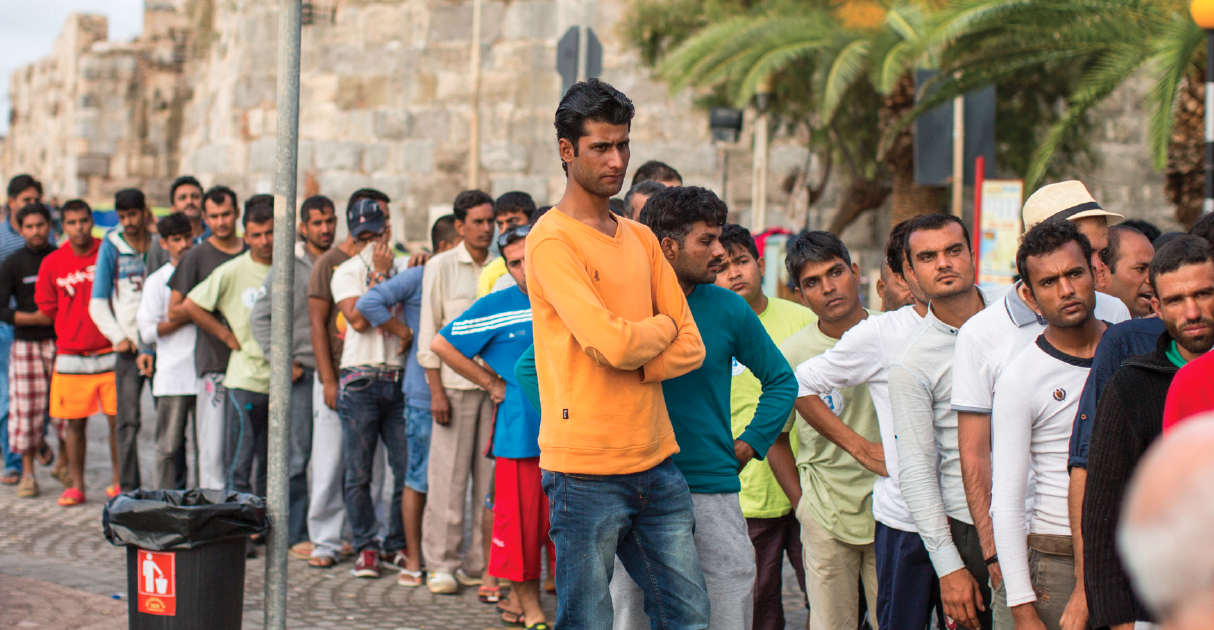By Melissa Wuske
Evangelicals Urge Government to Welcome Refugees
In response to the worldwide refugee crisis, the Evangelical Immigration Table is asking President Obama and members of Congress to open the U.S. to greater numbers of refugees. “The United States of America has a proud history of welcoming refugees, and local churches have long been eager partners in the process of integration,” the group said in a letter.
Leaders of the group also penned independent letters. “As a nation ‘under God’ we have the faith and moral imperative to become the hands and heart of God by reaching out and welcoming the stranger,” wrote Bishop Jose Garcia, Director of Church Relations, Bread for the World. Shirley V. Hoogstra, President of the Council for Christian Colleges & Universities, wrote, “We have the educational and employment opportunities that allow refugees to contribute in meaningful ways to the United States and to fulfill their God-given potential. Increasing the number of refugees is consistent with our biblical mandate to take care of the least of these.”
Hope and Help for Marginalized Women
Research in the new book Can’t Catch a Break: Gender, Jail, Drugs, and the Limits of Personal Responsibility by Susan Starr Sered and Maureen Norton-Hawk gives churches and other organizations insight into how to help women who’ve been marginalized and criminalized.
While many programs aim for self-sufficiency, that may not be the best goal. “None of us are truly self-sufficient,” said Sered. Instead, the research suggests that these women need to be able to share in the social capital (such as the ability to access jobs, housing, health, and education) available through faith communities and to have a way to make meaning from their suffering.
“The women I know rarely have friends outside of their own circles of other poor and marginalized individuals and families. None of them know anyone who might be hiring or renting out a room,” Sered said. “Faith communities—with regular times for worship and adult education, and information-sharing through newsletters, social media and congregational list-serves—are probably the deepest sources of social capital in the United States.”
Women who’ve faced immense suffering are looking for meaning beyond the simple identity of victim. “As a Jewish outsider looking in,” said Sered, “it seems to me that the power of Jesus’ preaching as well as his horrific death is that suffering has cosmic meaning, that it has identifiable causes, and that those who have suffered the most can have the most to offer other people.”
Heartrending Last Words
In the moments before Juan Martin Garcia was executed, he exchanged words with the wife, Ana Solano, and daughter of the man he murdered: “The harm that I did to your dad and husband—I hope this brings you closure. I never wanted to hurt any of you all.”
Solano, who had previously testified on Garcia’s behalf against the death penalty, cried and told Garcia she loved him in the moments before he died. Her act of compassion and forgiveness bears an even stronger testimony: “It’s about God. It’s about Jesus.”
Play for Power
When Jessica O. Matthews was traveling in Nigeria, she noticed two things: lack of reliable electricity and constant playing of football (soccer). Matthews started Uncharted Play to use the later observation to address the former. The company makes soccer balls and jump ropes that collect kinetic energy that can then be used to power electronic devices. Nearly one-fifth of people around the world don’t have dependable electricity.
Melissa Wuske is a freelance editor and writer. She and her husband, Shawn, live and minister in Jamaica Plain, Massachusetts. Find her work online (melissaannewuske.com).



Comments: no replies